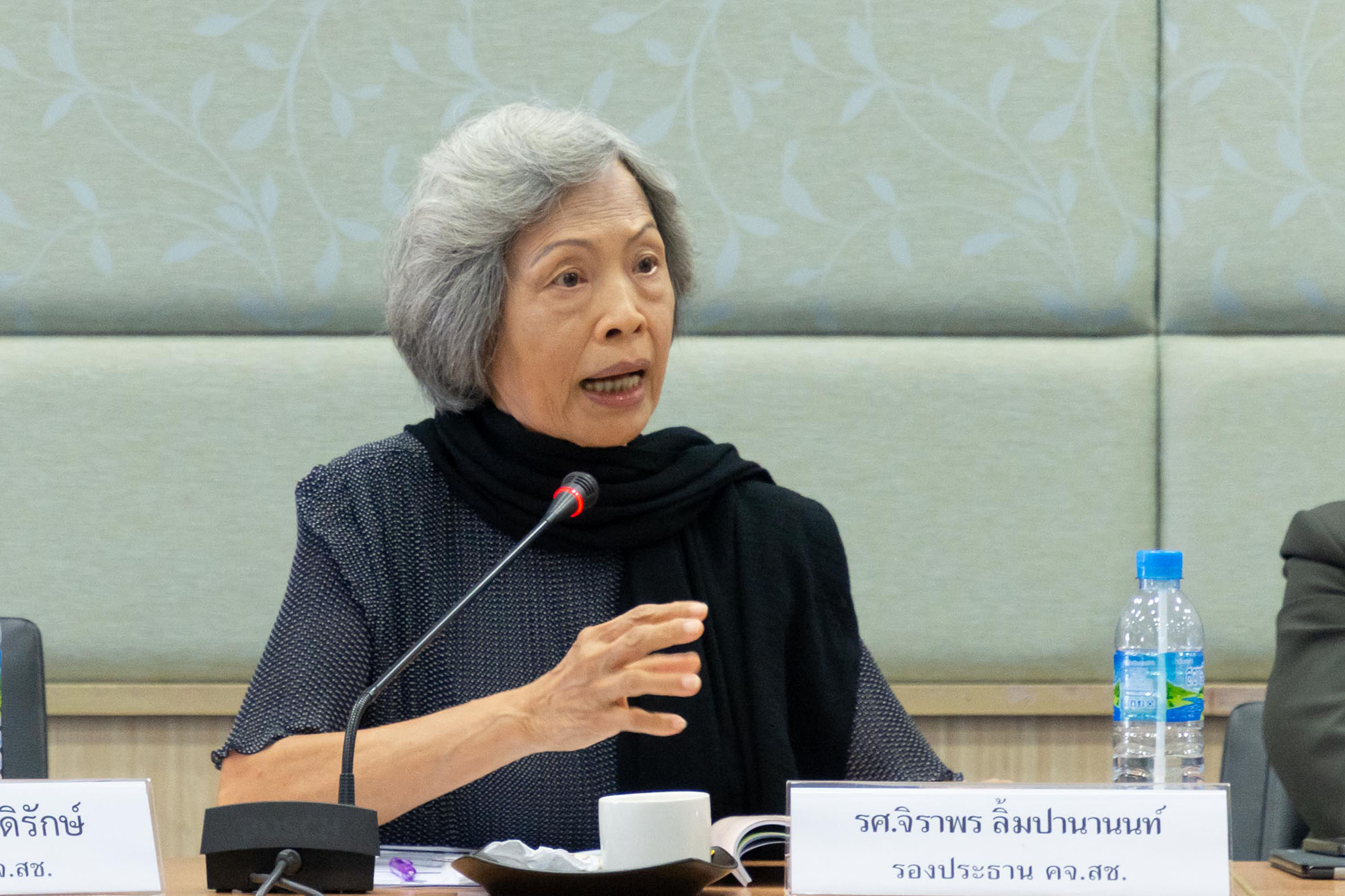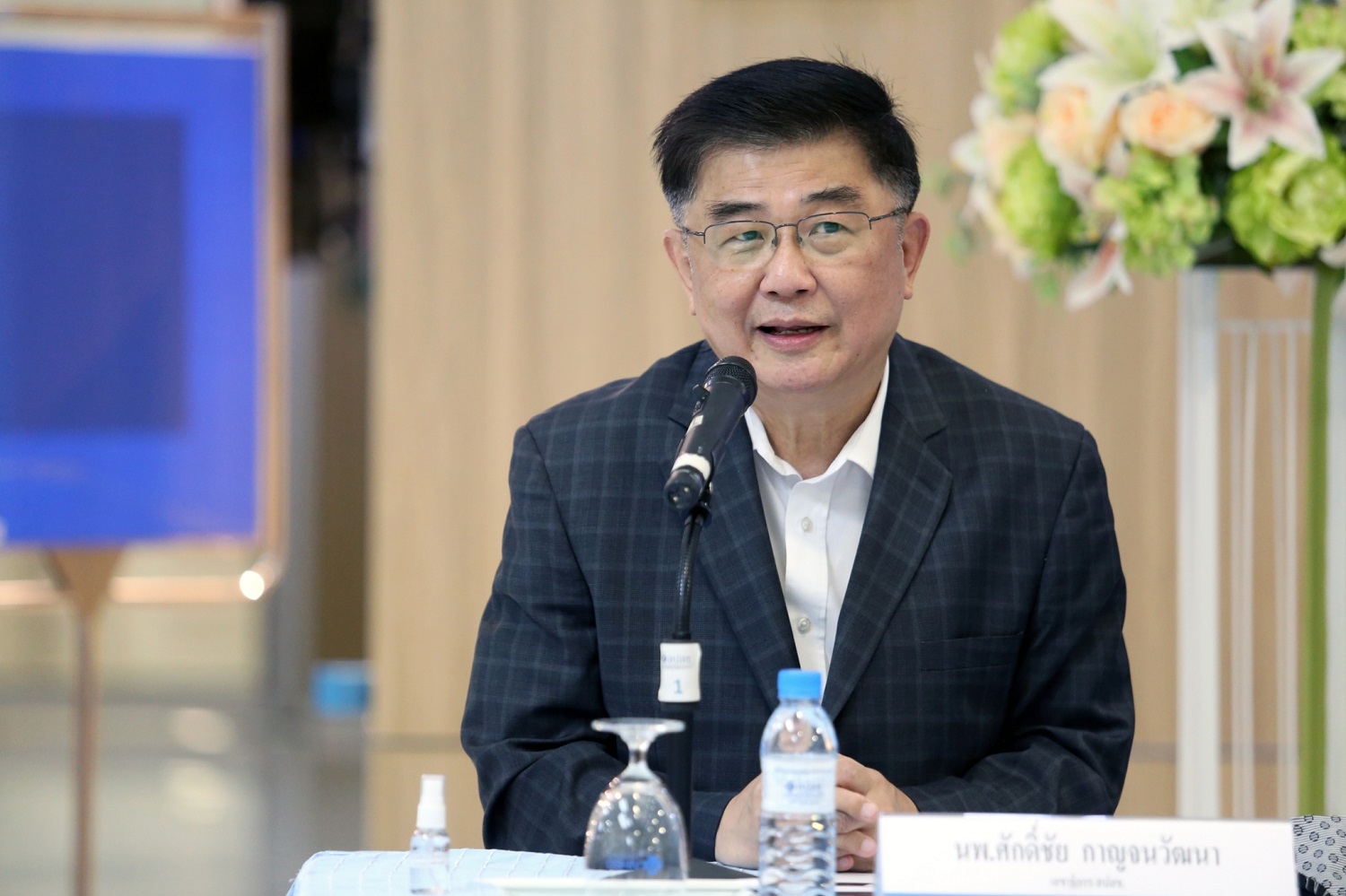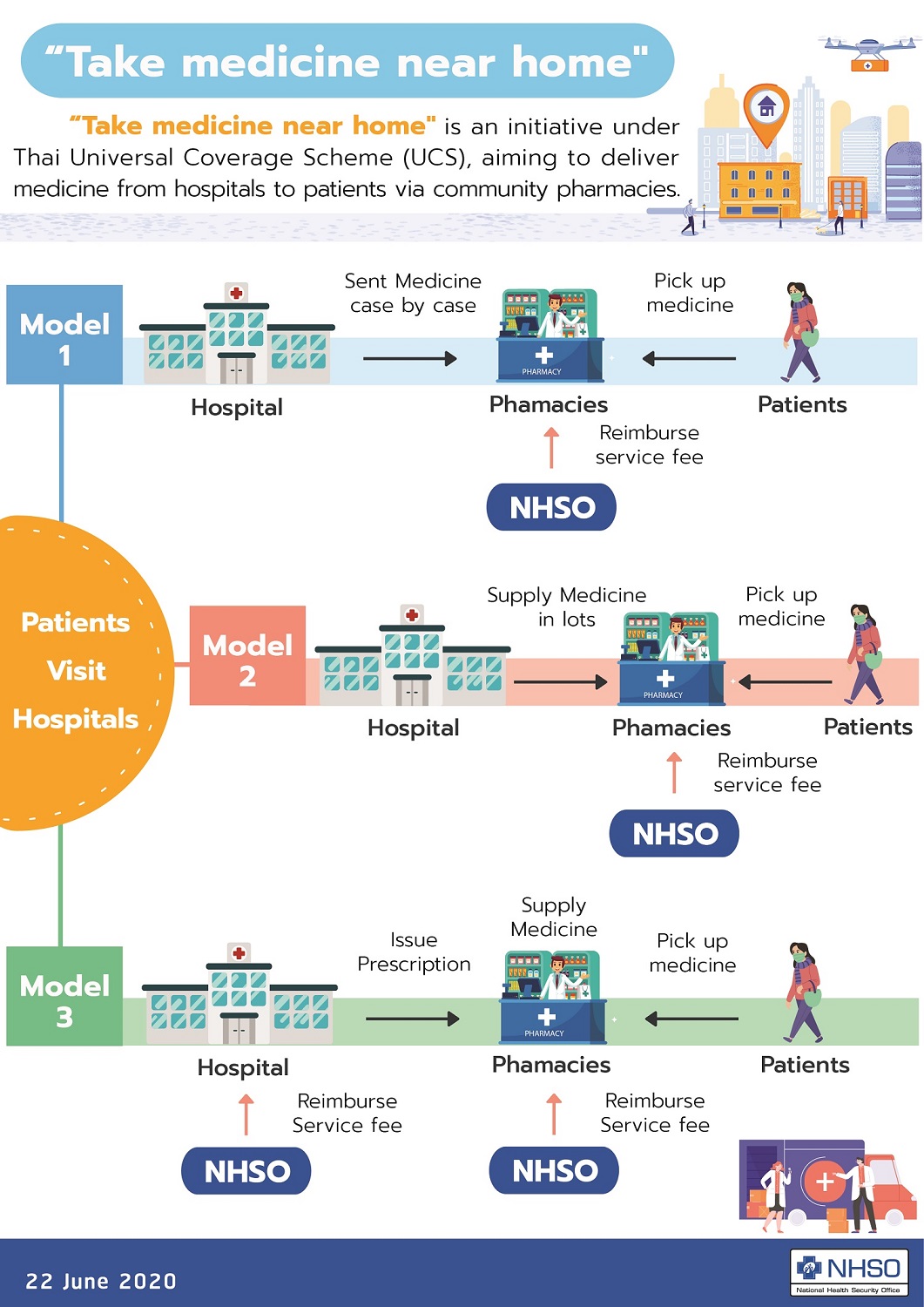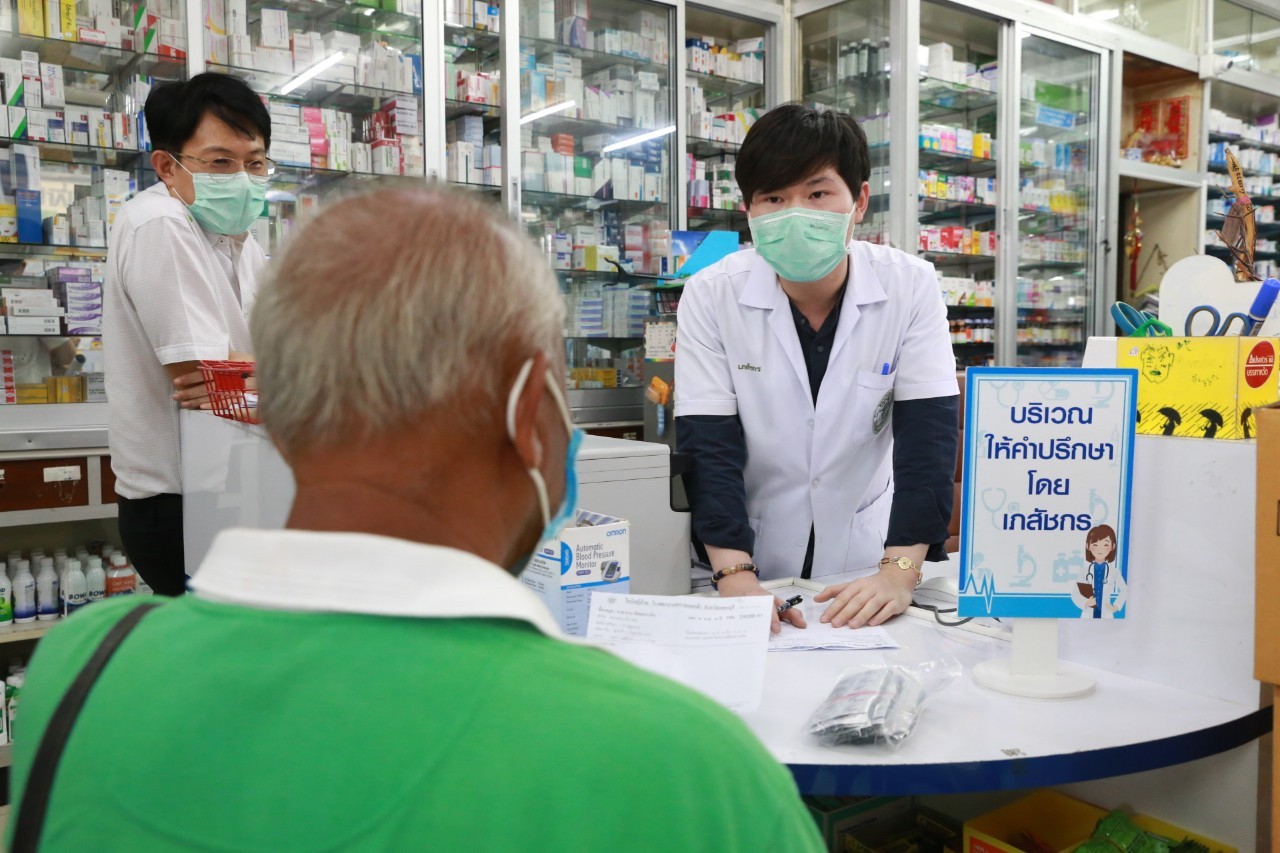
- Home
- DescriptionNews
UCS medicine delivery initiative
.jpg)
Patient registered with the Universal Coverage Scheme can pick up medicine from pharmacies near their home, without spending the whole day visiting hospitals.
Living with chronic disease, Wantong Panjanghan must visit an Udon Thani hospital every three months to get a prescription from a doctor and request medicine from the pharmaceutical dispense unit.
She must spend more than two hours on each visit as the ward was often crowded with patients.
But a timespan shrinks to 10 minutes after she joined "Take medicine near home" program launched in 2019 by the National Health Security Office (NHSO), the government agency operating Universal Coverage Scheme (UCS), in collaboration with the Pharmacy Council of Thailand, Community Pharmacy Association, and the Association of Hospital Pharmacy.
The program starts a medicine delivery system in which patients can pick up medicine from pharmacies located in their communities, without going to hospitals and free of charge.
"It's very convenient and time-saving. I can consult a pharmacist near my home about my medication and how to take care of my health," she said.
Personal pharmacists
More than 99% of Thai populations are covered by Universal Healthcare Coverage. UCS is one of the social welfare schemes that provide free healthcare access to 49 million people regardless of their financial status.
But the availability of free medical services can lead to unintended consequences---crowded wards and heavy workload for health staff. Many patients may visit hospitals with unnecessary causes or symptoms that can be treated at home.
"Take medicine near home" is an initiative that aims to fix this challenge by tapping the potential of community pharmacists, the patients' very first stop for requesting health information. There are more than 5,500 community pharmacists in Thailand, according to a record of the Community Pharmacy Association.
"When joining 'Take medicine near home' program, pharmacists will be parts of an effort to improve the healthcare system.

Jiraporn Limpananon, President of the Pharmacy Council of Thailand
They will distribute medicine, give advice on medication, and follow up on patients' health conditions. They will even visit patients' homes or provide medical consultation via chat applications," said Jiraporn Limpananon, President of the Pharmacy Council of Thailand.
"This an opportunity for every patient to have 'a personal pharmacist.' If the program is achieved, it will reshape the Thai healthcare system into something better."
Around 130 hospitals and 1,033 pharmacy operators have joined the program, with 14,391 patients received medicines from pharmacies located in their communities.
The program focuses on delivering medicine, via community pharmacies, to patients with non-communicable diseases such as diabetes, hypertension, asthma, and mental health problem. Patients with stable conditions are also considered eligible for the program.
Find the best way of medicine delivery
Since the introduction of the "Take medicine near home" program, the NHSO and pharmacist groups have experimented with many different options of medicine delivery to find the best way for patients, hospital and pharmacy operators.
Initially, hospital operators provide supplies to pharmacies becoming patients' medicine pick-up points. Patients can request medicine with two options.
For chronic disease patients having no appointment with doctors, hospital operators will organize medications and dispatch to pharmacies.
For patients having appointments with doctors, they can take prescriptions from doctors to pharmacies instead of queueing up at the hospitals' pharmaceutical dispense unit.
"However, both options do not reduce the workload of hospital operators, who still need to arrange medicine and deliver it to community pharmacies," said Jiraporn.
"This challenge leads us to another new option, which pharmacy operators manage and supply medicine without depending on hospital operators. The NHSO will then reimburse the cost for pharmacy operators directly."
Dr. Sakchai Kanjanawatana, NHSO Secretary-General, said that the new option would be piloted this year.

Dr. Sakchai Kanjanawatana, NHSO Secretary-General
The NHSO will provide some funding for pharmacy operators' purchasing and stocking medicine. If they provide primary care services such as screening yet for common diseases and health monitoring, they will receive top-up fees from the NHSO.
Gain recognition
King Mongkut Memorial Hospital in Phetchaburi is one of the very first hospitals in Thailand that joins "Take medicine near home" program since Dec 2019.
"More than 2,000 patients visit our hospital in a day, making them waiting in a long queue to get our services and medicine. So we decided to join the program to in an attempt to reduce the crowd in the wards," said Dr. Chumpol Decha-ampai, the hospital director.
"We have a small number of participants in the program at the beginning. But we've actively promoted it and gained more recognition from our patients."
The necessity of social distancing during the Covid-19 pandemic has made more patients accepted medicine delivery service. The patients' request for medicine delivery in Phetchaburi increased more than four times between Mar and Apr.
Phetchareuk Tansawad, Director of Phetchaburi Provincial Public Health Office, said that his office targeted to expand the program participants to eight hospitals and 102 pharmacies.
"We can make it happen with the effort and collaboration of hospital and pharmacy operators. It will enhance the quality of healthcare. Patients will be the most benefited from this improvement," he said.



